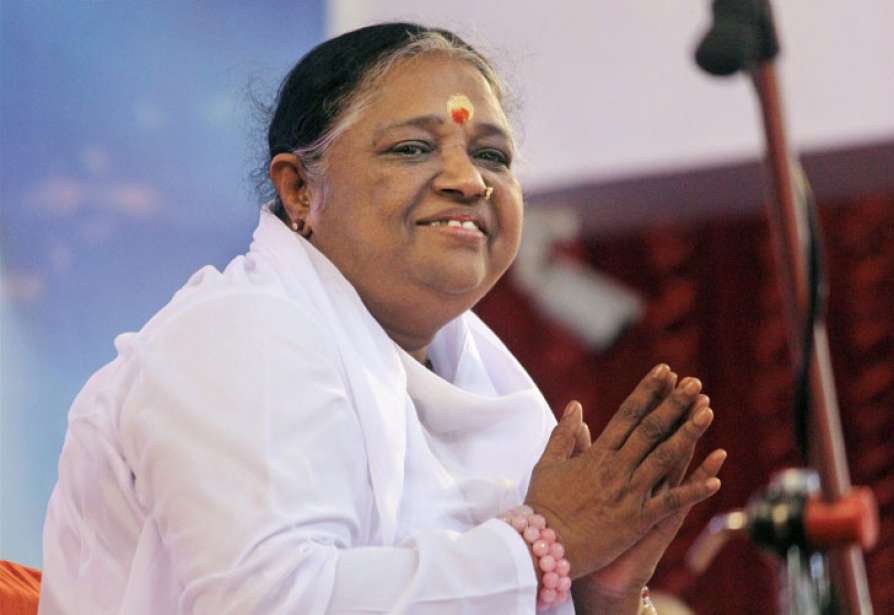Mata Amritanandamayi Devi
Those who experience true peace within themselves alone can give peace to others. Until we rid ourselves of our own hatred and hostility, all our attempts to achieve everlasting peace are bound to fail; for our attempts will be tainted by our individual likes and dislikes.
Peace is essential to all of us. Peace is not just the absence of war and conflict; it is the spirit of harmony within ourselves. Peace should be fostered within the individual, family and society. Simply transferring the world’s nuclear weapons to a museum will not, in itself, bring about world peace. The nuclear weapons of the mind must first be eliminated. That is the role of religions.
A hallmark of civilisation is the open-mindedness to accept differing views and diverse people… Let religious leaders and representatives set a new example to the world through their broad-mindedness, mutual understanding and cooperation. The world needs living examples. Religious leaders should take the lead in resolving religious conflicts and in re-establishing peace in their respective spheres of influence. In today’s civilised, global society, religious interests should not be propagated by unfair means.
The historic purpose of religion is not to build walls of division, but to knit people together with the thread of universal love. Fanaticism and terrorism are two serious problems. Religious extremism grows from poor understanding of the basic goals of religion, and from the exploitation of religious sentiments. Religious leaders should discourage activities endangering human values, and should create a conscious movement against these deplorable actions.
The key to world peace is with every individual. Just as each member of a household shares the responsibility of safeguarding the home, each of us shares the responsibility of world peace. Love and unity are not alien to human nature; they form the very foundation of human existence.
Religion is the science of the mind. It gives insight into the nature of the mind. Today we are able to air-condition the external world, but we have yet to learn how to air-condition the mind. We are trying to clone human beings, but we do not attempt to create within ourselves a perfect, loving and peaceful human being. An important part of religion is this purification process. Today we are aware of the need to protect our environment; this is essential.
Yet we are seldom concerned with the pollution that negative thoughts and actions create in the atmosphere and in the consciousness of humanity. The inner pollution of the mind is in many ways more lethal than chemical pollution, for it has the power to destroy humanity at any time. We, therefore, need to purify our mental environment. A lasting and positive transformation can be brought about only by correcting the human mind, after removing the impurities of egoism, jealousy, hatred and anger from within. Religion lights the lamp of love in the hearts of humanity. The duty of religion is to inculcate virtues in people, mould their character, and fill their minds with love and concern for their fellow beings.
We should strive to reach a state in which we are able to view all beings of the world, both animate and inanimate, as a part of our own Self. Just as the right-hand reaches out to aid the left hand when it is injured, the ability to feel the sufferings of all beings as our own, and an intense yearning to comfort them, should awaken within us.
Excerpted from amma.org. The 66th birth anniversary of Mata Amritanandamayi Devi is being observed on September 27






